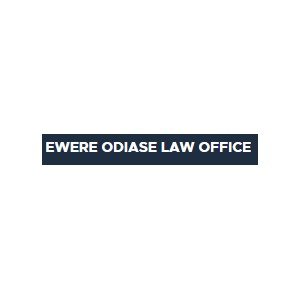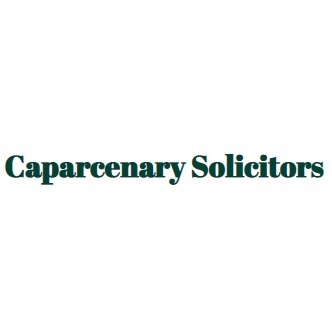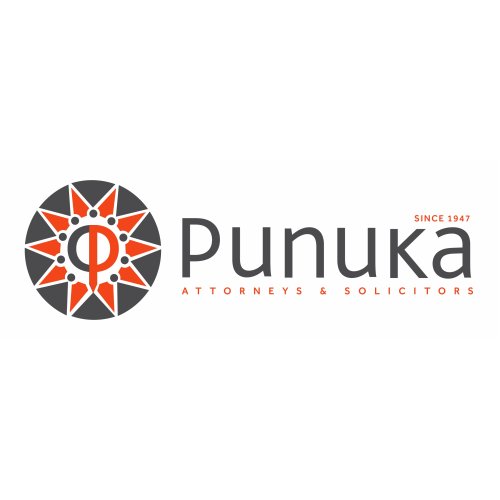Best Conveyancing Lawyers in Asaba
Share your needs with us, get contacted by law firms.
Free. Takes 2 min.
Free Guide to Hiring a Real Estate Lawyer
List of the best lawyers in Asaba, Nigeria
About Conveyancing Law in Asaba, Nigeria
Conveyancing in Asaba, Nigeria, refers to the legal process of transferring property ownership from one person or entity to another. It includes the preparation, execution, and registration of documents needed to legally transfer title to land, houses, or commercial properties. Conveyancing is governed by a combination of federal and state laws, customary practices, and procedures established by the Delta State Government, under which Asaba falls. Proper conveyancing helps ensure that the property transaction is valid, the buyer’s title is secure, and that all statutory requirements are fulfilled to prevent legal disputes in the future.
Why You May Need a Lawyer
Conveyancing can be a complex process with several legal, regulatory, and documentation requirements. Here are some common situations where hiring a lawyer is essential:
- Buying or selling a home or land in Asaba
- Transferring property as a gift or inheritance
- Verifying the authenticity of property titles and documents
- Conducting due diligence on property to avoid fraud or disputes
- Registering title or perfecting property documents with government agencies
- Handling mortgages or securing financing using real estate as collateral
- Drafting and reviewing deeds, contracts, and other agreements
- Resolving disputes regarding boundaries, ownership, or rights of way
- Complying with local land policies or urban planning regulations
- Representing clients in court for matters relating to property transactions
A qualified conveyancing lawyer can guide you through these processes, ensure compliance with the relevant laws, and protect your interests throughout the transaction.
Local Laws Overview
Conveyancing in Asaba is primarily regulated by the Land Use Act of 1978, which vests all land in each State in the Governor, who holds it in trust for the people. This means that land holders have a right of occupancy rather than absolute ownership. Key aspects of local conveyancing law include:
- Obtaining Governor’s Consent for any transfer, mortgage, or alienation of landed property
- Ensuring that all necessary searches are conducted at the Land Registry and relevant authorities to confirm title authenticity and check for encumbrances
- Observing Delta State’s specific land allocation, planning regulations, and land use zoning
- Registering titles and perfected documents with the Delta State Land Registry
- Payment of stamp duties and other statutory fees during the process
Customary land ownership is also common in Asaba, and such land is governed by traditional laws and practices until it is formally acquired and registered under statutory law. Special attention is needed when dealing with family or communal land to avoid future disputes.
Frequently Asked Questions
What is the first step in acquiring property in Asaba?
The first step is to conduct a due diligence search to verify property ownership, status, and any encumbrances at the Land Registry and with the community or family if it is customary land.
Why do I need the Governor’s Consent for a property transaction?
The Land Use Act requires that the Governor’s Consent be obtained for any transfer or mortgage of land, as the Governor administers all land for the citizens. Without this consent, the transaction may be null and void.
How long does the conveyancing process take in Asaba?
The process can take several weeks to a few months, depending on the complexity of the transaction, speed of documentation, searches, and processing at government offices.
Can I buy land directly from a traditional family or community?
Yes, but it is essential to ensure that the family or community has genuine ownership and the authority to sell. Involve a lawyer to avoid disputes and perfect the title by registering it at the Land Registry.
What documents do I need to transfer property in Asaba?
Common documents include the Deed of Assignment, purchase receipt, Governor’s Consent, survey plan, Certificate of Occupancy (if available), and tax clearance certificates.
What are the common risks in property transactions in Asaba?
Risks include fraud, purchasing from unauthorized persons, existing encumbrances, double sales, unregistered land, and failure to obtain required governmental approvals and consents.
Is it mandatory to register my property title?
Yes, registration with the Delta State Land Registry is necessary to perfect your interest, protect your rights, and avoid disputes.
Are foreigners allowed to acquire land in Asaba?
Foreigners may acquire land, but certain restrictions apply under the Land Use Act, and approval from the Governor is mandatory. Additional documentation and scrutiny may be required.
What is customary land, and how does it affect conveyancing?
Customary land is owned by indigenous families or communities under customary law. Special steps are needed to verify proper authority for sale and to convert title to statutory ownership for full legal recognition.
What fees are involved in conveyancing in Asaba?
Fees may include legal fees, search fees, stamp duties, registration fees, consent fees, survey charges, and, in some cases, community development levies or traditional fees.
Additional Resources
People seeking legal advice in conveyancing can access help from the following resources and organizations:
- Delta State Ministry of Lands and Surveys - for information on land registry, documentation requirements, and property searches
- Delta State Land Registry, Asaba - for title searches, registration, and verification of land documents
- Nigerian Bar Association, Asaba Branch - for locating qualified lawyers specializing in property law and conveyancing
- Bureau of Lands, Urban and Regional Planning, Delta State Government
- Local traditional institutions - for customary land transactions and dispute resolution
Consulting any of these bodies can provide valuable direction and assistance for conveyancing issues in Asaba.
Next Steps
If you require legal assistance for a conveyancing matter in Asaba, it is advisable to:
- Gather all relevant documents, such as your property deed, survey plan, and previous agreements
- Document your questions or concerns regarding the transaction
- Contact an experienced conveyancing lawyer in Asaba through the Nigerian Bar Association, referrals, or legal directories
- Arrange a consultation to discuss your needs and the required steps
- Allow your lawyer to handle due diligence, documentation, and interactions with government authorities to ensure full compliance with the law
Proper legal guidance is the best way to safeguard your interests and ensure a smooth transfer of property ownership in Asaba, Nigeria.
Lawzana helps you find the best lawyers and law firms in Asaba through a curated and pre-screened list of qualified legal professionals. Our platform offers rankings and detailed profiles of attorneys and law firms, allowing you to compare based on practice areas, including Conveyancing, experience, and client feedback.
Each profile includes a description of the firm's areas of practice, client reviews, team members and partners, year of establishment, spoken languages, office locations, contact information, social media presence, and any published articles or resources. Most firms on our platform speak English and are experienced in both local and international legal matters.
Get a quote from top-rated law firms in Asaba, Nigeria — quickly, securely, and without unnecessary hassle.
Disclaimer:
The information provided on this page is for general informational purposes only and does not constitute legal advice. While we strive to ensure the accuracy and relevance of the content, legal information may change over time, and interpretations of the law can vary. You should always consult with a qualified legal professional for advice specific to your situation.
We disclaim all liability for actions taken or not taken based on the content of this page. If you believe any information is incorrect or outdated, please contact us, and we will review and update it where appropriate.












